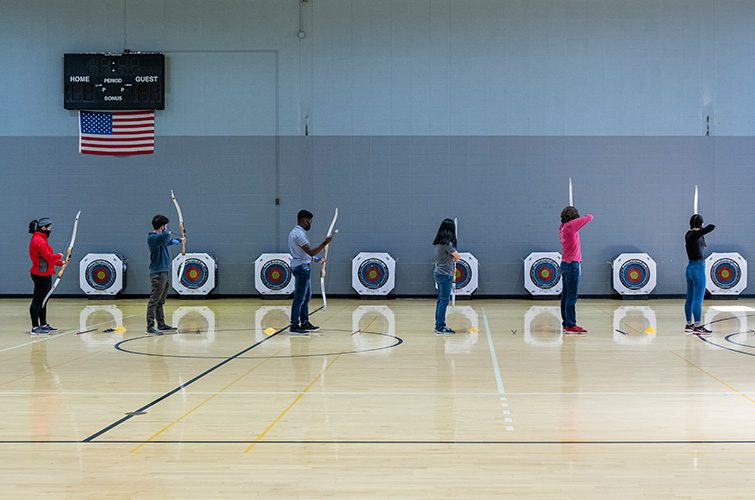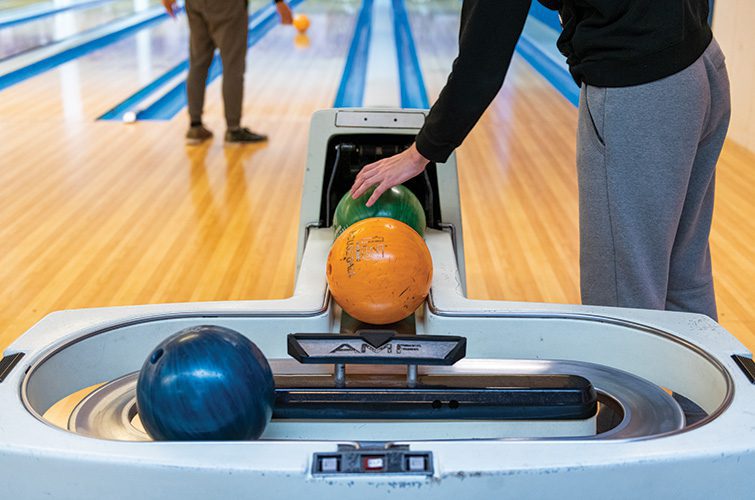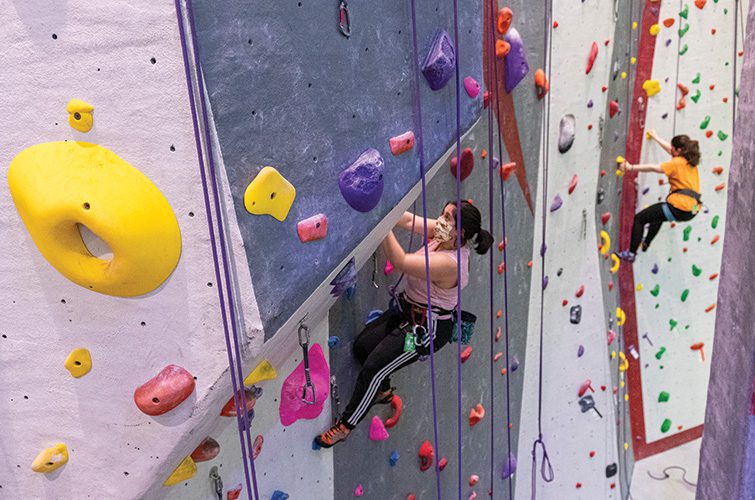In 1920, 97% of students in a four-year higher education institute had to take a Physical Education (PE) course. By 2010, the journal Research Quarterly for Exercise and Sport reported that number had dropped to 37%.
One of those schools still requiring PE courses is Cornell University. Located in the heart of New York state’s Finger Lake region, students are required to take two PE courses and a swim test.
For that reason, Jen Gudaz, the director of Physical Education and Recreation, said her department reaches every student on campus. But the best part is they keep coming back after meeting their requirements. “I’ve been doing research the last four years on the amount of students taking PE who don’t need the credit for it, and that’s been cool to watch, too, because we see that number growing each year,” she said.
With these credits being a must, it’s no wonder that PE and Cornell Outdoor Education offer over 500 PE classes a semester. The courses range from handguns to sailing to yoga. “We offer a variety of life skills for students to learn and take with them moving forward,” said Gudaz.
Tree Climbing at Cornell
One of the most unique PE courses is tree climbing. Part of the Cornell Outdoor Education program — which boasts 130 of the PE courses — tree climbing came about due to complaints from rock climbing instructors that the majority of climbing courses were indoors.
“They felt like we should more appropriately be called, ‘Cornell Indoor Education,’” said Mark Holton, the co-director of Cornell Outdoor Education. “It was a reasonable criticism because part of our mission is to inspire environmental stewardship.”
But the cliffs in the area are unclimbable. That’s when one of the instructors, David Katz, suggested they could climb trees, benefiting students with not only exercise, stress relief and adventure, but even possibly providing career outlets. So, they teamed up with another avid climber, Keith Luscinski, and offered the first tree climbing class in 2006.
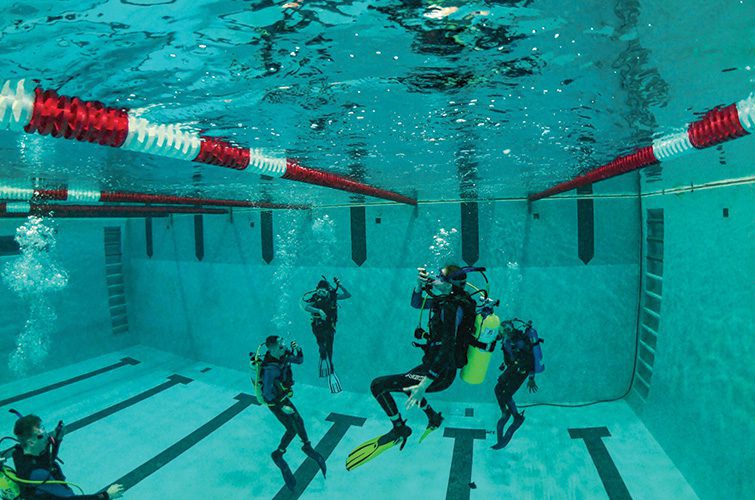
Since then, every class has reached capacity. They also do private lessons for the community — training scientists and even telephone pole workers. Plus, students are given the chance to put their tree climbing into action on trips to California, Africa and Costa Rica to explore rainforest canopies or assist in giant sequoia research.
Although Holton said the idea initially drew skepticism, it has since won people over. In fact, the Huffington Post referenced Cornell’s tree climbing program in a 2014 article about some of the most unique college classes around. “Don’t let skepticism discourage you,” said Holton. “We have had many students say [participating in the tree climbing program] was the best experience of their college years.”
Overcoming the Staffing Challenge
However, there is a catch-22. Despite reaching every student through unique PE classes like tree climbing, many at Cornell still don’t know what Recreational Services is as the university doesn’t have anything close to a recreation degree. Plus, most don’t have an interest in working for the department. Students would rather be in the lab or gaining experience to further their future career.
As such, Gudaz said one of their main challenges is staffing their five facilities, with No. 6 opening in the fall of 2021.
“It was very hard for many of us to come to Cornell and not have students who really wanted to work for us,” said Gudaz. “We have to search them out.”
And once found, the department has worked hard to build a place, a culture and a community students don’t want to leave. Jodi Galucci, the associate director of Facilities Operations, said they’ve done so through the little things.
The most impactful little thing has been the Five Star Program. New hires start as a One Star and can move up levels. To do so, student staff fitness monitors take required and optional training classes and/or conduct trainings for new hires or interviews. Each level has requirements, all the way up to level five. With each level comes rewards: pay-raises, scheduling preferences, and on the Four Star and Five Star levels students can earn apparel to wear on shift.
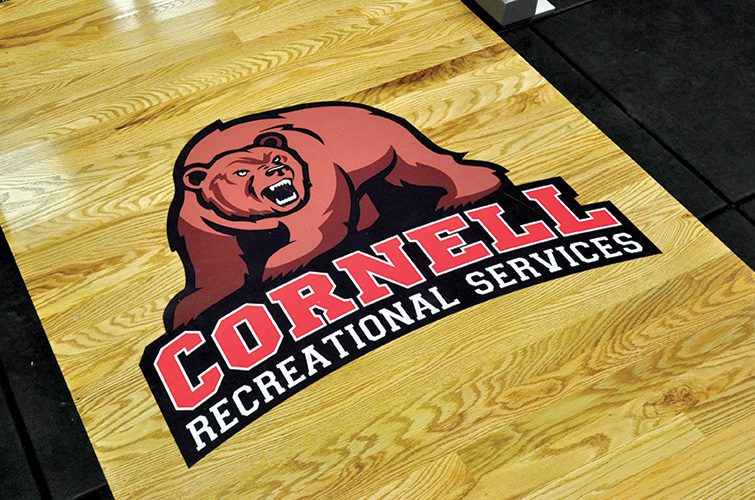
But it hasn’t stopped there. Galucci has also worked on an incentive program for fitness monitors who are seen going above and beyond. After gathering feedback and trying various things, she said they landed on giving staff kudos.
When one gets a “kudos” their name goes into a drawing, it shows up in the weekly newsletter, it can lower discipline and it gives positive schedule ranking points.
Plus, Galucci added an adulting workshop series for student employees. There are two to three workshops per semester and they cover topics of a wide variety: sewing, budgeting, crockpot cooking, car maintenance, mindfulness, tenant’s rights, etc.
“It started off slow but soon students started talking about it and it took off,” she said. “I have partnered with people in different departments across campus, the local community and in the department to teach these workshops at no or low cost.”
EXTRA CREDIT: What is Adulting 101? Kerry Klug shares about the innovative and creative program added to campus recreation on his campus.
On top of all of that, students are gaining invaluable experience as well. For example, Gudaz said they have built student coordinator positions for each facility, giving them ownership of a complete site. This can go a long way in terms of experience on a resume. “That’s been very successful for us, versus having a staff member oversee each facility,” said Gudaz. “The student is essentially running their facility and they’re in charge of the staffing.”
But Recreational Services isn’t just about students. It also has a thriving focus on professional staff and faculty, as well as a retiree community.
Serving Multiple Communities
For starters, the retiree program has been part of Recreational Services for 25 years and has over 200 members. During a non-COVID time period, classes are offered from 8 to 11 a.m. Monday through Friday. These include everything from HIIT and CrossFit-style classes to Barre and yoga. “It’s been a really big piece in order to fill our facilities,” said Gudaz. “We could do other things there, but they’re our priority. And we want to make sure they feel welcome.”
In terms of serving faculty and staff, Gudaz said they have four full-time staff dedicated to this focus.
Kerry Howell, the director of the Cornell University Wellness Program, said a lot shifted in serving staff and faculty when COVID-19 hit in 2020.
“Throughout the pandemic, the Cornell community has had a need for increased offerings that help to build personal resilience and support healthy immune systems,” said Howell.
Both a Wellness blog and Community Wellness Chats were created to educate faculty and staff on a variety of topics: how to ride a bike in cold weather, staying hydrated during the holidays, etc.
In February 2021, Howell said they held a Celebration of Black History Month health and wellness campaign. Staff member Jeremy Stewart interviewed a number of Black staff and faculty as well as local community members to discuss health-related topics primarily prevalent in the BIPOC community.
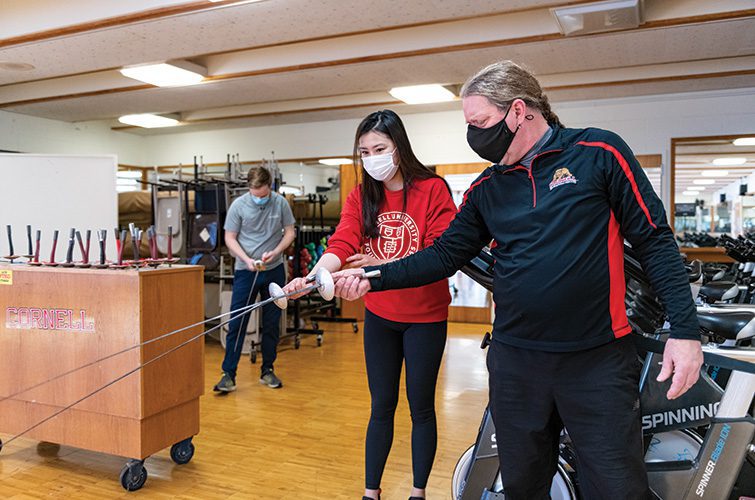
The offerings for faculty and staff have been far reaching and varied. However, that ran along the lines of Howell’s tip to take a chance.
“You never know if something will resonate with people unless you give it a try,” she said.
It seems that idea of resonating with a wide audience is happening across campus. Recreational Services is providing incredible value to the Cornell community, and Gudaz’s biggest hope is people see that value. The department is impacting livelihoods, career readiness and opportunities, and building connected communities that might otherwise not exist.
Of course, there’s always more that can be done by campus recreation to impact the well-being of those it serves. However, sometimes noting one of the simplest of impacts is the most powerful. “We could be doing more, and we want to be doing more, and we want to be more involved,” said Gudaz. “But when I sit in meetings, I always think to myself, ‘I’m so fortunate we’re the people who provide happiness.’”
Images by Eldon Lindsay



